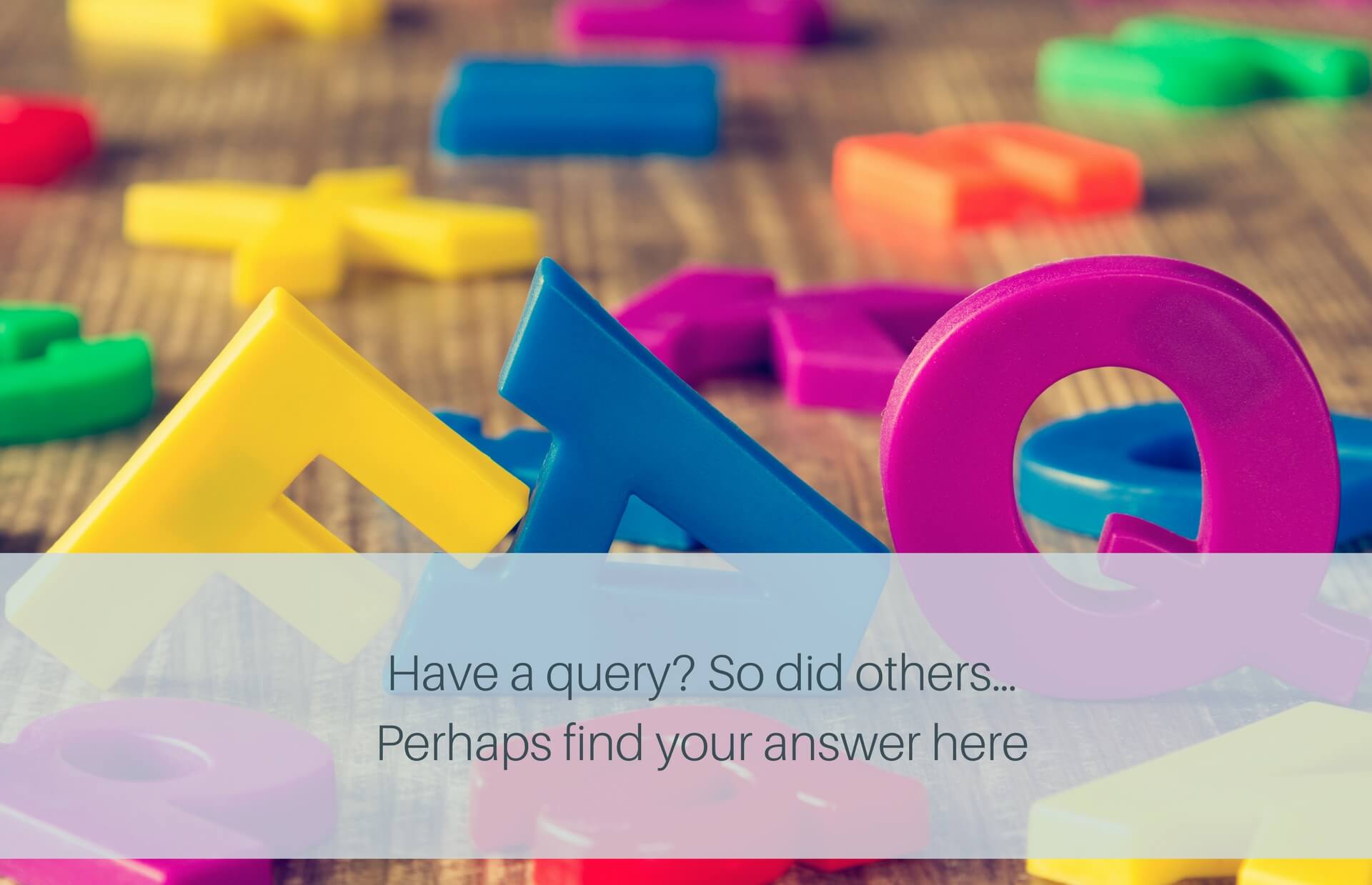
Here is a list of the most common questions I get. If there is something that you need to ask me, please email me
There seems to be so much food! Won’t this make me fat? I want to lose weight!
The short answer is that there is a lot of food on purpose! Firstly, we need to keep a decent amount of calories in your daily intake in order to keep your metabolism from decreasing. If we keep your metabolism high, you will get slim more consistently, and then stay slim! If you eat less, your metabolic rate decreases; you lose weight then hit a ‘plateau’; then gain it all back when you eat normally.
Eating sufficient calories keeps your body metabolising fast. But remember, this diet has been very carefully designed to use the RIGHT calories! We make sure that you only eat the calories that maintain or increase the metabolism. The ones that contribute to fat gain are very strictly controlled!! These days, research has shown us that calories are by no means equal, so calorie counting is simplistic and only works effectively in the short-term. Now, we look at the effect of certain foods on insulin response and control that. It’s now quantity AND quality that counts!
What is LOW GI and how will it help me?
The GI stands for Glycaemic Index, and refers to the rate at which foods release their component carbohydrates into the blood. All carbohydrates release glucose (that’s why we eat them! They give us the energy to keep us going and maintain a high metabolism). But, some carbohydrates are made by nature so that their component glucoses ‘dissolve’ into the blood quickly. This is not great for treatment or control of weight, diabetes, cholesterol etc. Other carbohydrates are made in a way that they release their component glucoses SLOWLY into the blood after being eaten.
These are called LOW GI carbs, and have been shown to be very beneficial indeed in controlling all Syndrome X disorders, as well as fat loss and energy and appetite. So, learn about GI and work it into your lifestyle if you want to prevent or treat energy problems, weight problems, concentration issues, cholesterol and heart problems, high blood pressure, infertility, arthritis and gout and ADD! Quick answer? The GI is one of the biggest dietetic breakthroughs I know of…learn and use for a new body that you’ll love looking after!
I have diabetes and high cholesterol. Can I still follow this diet?
Yes! Yes! Yes! This diet was specifically designed to treat Syndrome X from the SOURCE of the problem, not to treat the symptoms. Syndrome X is a multi-facetted disorder, encapsulating diabetes, cholesterol problems, arthritis and gout, infertility, high blood pressure and weight gain.
So, it is a Type 2 Diabetic diet, which works to lower the amount of insulin released in the blood, and thus treat the problems listed above. Yes, this plan is appropriate for diabetics. Type 1 diabetics should incorporate a more comprehensive lifestyle assessment, depending on the individual insulin dosages administered. Monitoring with your registered dietician is advised to incorporate the exact amounts here. If you are a well-educated diabetic, then these diet principles are perfect for you!
None of this food looks anything like the food I am supposed to eat on other diets. I thought that to lose weight you needed to cut out gravies, sweet things, sugar, puddings and colddrinks. Why have I always been told that I’m not allowed these, and now you tell me I MUST have them?! This seems seriously too good to be true!
This is NOT too good to be true! I have taken the low GI and very low fat principles, and have worked very, very hard over the past 12 years to produce a diet that looks NOTHING like a diet! On purpose!
Once you understand the principles of GI, have mastered the balance of food in each meal, know how to avoid fats in your diet, and understand how foods can enhance each other when combined, then you will understand why I have put certain foods together, included them in recipes and advised when to eat them. But the big point here is: education! There are some sweets that are made from sugar that are better than those made from glucose, for instance. These can be included when eaten with certain carbohydrates, after fat free milk, or with a specific meal. However, when the right type of food is chosen carefully, and all components are selected according to correct criteria, ALL FOODS FIT! And yes, it should NOT look like a diet.
It should be fun enough for you to want to follow it for a very long time without feeling deprived! Developing that was my job. It wasn’t easy. It took loads of time and many, many meals that tasted disgusting before they cam right, but it was worth it to see the faces on my patients when they are getting thinner and still eating their favourite meals that have secretly been converted to low GI and low fat! Always remember: if the food you eat on a healthy diet plan is not good enough for the rest of your family or friends to eat, why on earth are YOU eating it?!! This is a lifestyle for the long-run. And it must taste like it!
Most other popular diets advise decreasing or cutting out carbs because they are so fattening. How can I lose weight when you advise eating so many of these fattening things?!
Some carbs are High GI and thus stimulate lots of insulin in the bloodstream. These put your body in a ‘storage’ state, which does not favour fat loss. However, if you eat low GI carbs as in this diet, you will control your insulin levels to such an extent that you will be in ‘loss’ mode, while still eating lots and maintaining a high metabolic rate.
If you cut out carbs from the diet, you will lose weight quickly, but only some of that weight is fat. The rest is muscle, and once you’ve reached ‘goal’ weight, you are left with a low metabolism, and an inability to sufficiently burn up calories when you start eating normally again. What’s more, research has shown clearly that not eating carbs for 6 of more hours at a time actually makes you more insulin resistant (nudging you closer to developing diabetes and potentiating more rebound weight gain in the long-term).
This is not good news, and is why many, many patients who have done the carb-free diet lose very quickly, and then gain the weight back again (usually with more). And, it is then more difficult for them to lose it again, because they have become more insulin resistant and their metabolism is lower. It all gets complicated, but hopefully you can see that the science of weight loss is much more intricate than just claories in-calories out (as a lot of people still think!). Please remember, as a final word, though: carbohydrates themselves are NOT fattening! Research has shown that they cannot be converted to fats unless you eat in excess of 4400kCal/day (which is, in practical terms, 55 slices of bread per day!!)
The worst that high GI carbs can do is ‘prime’ your body to store whatever fats you DO happen to eat. But low GI carbs cannot possibly be seen as fattening. By anyone who understands nutrition and metabolism. It’s merely an old wives’ tale.
I have such poor will power! I usually can do a diet really well for 3-4 weeks and then I ‘fall off the wagon”. Do you think you can help me?
Yes, I can help you! Apart from studying dietetics, metabolism and genetics, I have studied psychology, and especially the psychology of food and eating. The reason why most people cannot (usually)follow a diet for longer than 3-4 weeks has NOTHING to do with WILLPOWER!
It is the fact that food represents MUCH more than just calories and micronutrients! It holds immense power in that psychologically food represents GIVING and TAKING of LOVE! I could really go into this a lot, but essentially, we derive a huge amount of emotional satisfaction from eating good food (it makes us feel rewarded, safe, and party of a culture). But we also derive huge chemical satisfaction from good food. For instance, carbohydrates aid in the production of serotonin in the brain (this chemical helps us feel calm, controlled and contented). Secondly, our taste buds are wired directly into the emotional centre of our brains.
So, if we are used to spaghetti Bolognese, mint peas, creamy coleslaw and fruit salad and custard, but then we have to start eating steamed fish, broccoli and cabbage, the brain can only hold out so long before DEMANDING more emotional input. In a nutshell? The deep sub conscious registers this as a withdrawal of ‘love’ and ‘giving’, and no brain in the whole world can survive in the long term without this. So, the longer the diet is strange, unsatisfying and bland, the stronger the brain will fight back to GET some more! Hence, the chemical need for moderate culinary stimulation will eventually override any conscious willpower or control to continue eating ‘nutrients’, and it will eventually ‘snap’ and eat extremely flavourful and ‘forbidden’ foods!
However, if you ensure that all foods that you eat are amazingly delicious at each mouthful (my stance exactly), then you are fully chemically satisfied and cravings will not exist and you will continue as a satisfied and healthy individual! Simple! This is why on my plan, you will not need ‘willpower’….willpower schmilpower.. I say.
I don’t think I can face another diet. I’m so sick of weighing, counting calories and starving. I just don’t know how I can get motivated to start all over again, even though I know I have to for my health. What do I do?!
Then stop weighing, counting and starving! With this plan, you gain an understanding that calories don’t need to be counted: variety merely needs to be adhered to! If you go very low fat and low GI, and have balance and variety, you will not need to worry about weighing or measuring again! Just follow the simple rules and you will not have to ‘watch’ what you eat again! Hopefully seeing the type of food you should eat will help you understand that you don’t need motivation, because this way of eating was designed to be fun!
Not “No pain, No Gain”. Something that actually makes you happy and excited to eat can’t require willpower or motivation! It’s just fun! What most of my patients say when they reach goal is, “OK, I know I need to change back to eating normally again, but I am eating better than I have done in ages, so why would I want to eat other things?!” Then I force them to go and eat fried fish because they’re just being naff.
Try it. You will see after a few weeks what I mean by not needing willpower. I laugh in the face of willpower! Ha ha!
Why does this diet for Syndrome X cut out all fats, even the ‘good’ fats such as olive oil, nuts and avo? I really thought they were healthy and wouldn’t make me fat?
The short answer is that the good fats are good because they swim in the blood through the heart without causing heart attacks (good). But they land on the hips and tummy and nestle down just as well as other fats! So, for a fat loss diet, these should be reduced substantially. The other reason these fats are good is because they contain omega 3 and 6 fatty acids which are essential fats (they cannot be made by the body so have to be eaten).
However, this is why I insist on including sufficient omega 3 fatty acids (supplement with salmon oil capsules at more than 1000mg per day) and oily fish. Also, it is advisable to also take omega 6 supplements found in evening primrose oil (at least 1000mg per day). The long answer is a very long answer….become a member to find out more about things like this!
How important is exercise on this plan?
How important is keeping your job? Yup..that important. You’ll survive without it (just) but not very well. It’s just something that is a no-brainer, and increases losses and permanence of losses if regular exercise is incorporated. If you can’t, expect health improvements at a slower pace. It’s better to have a 10-minute brisk walk up and down your road every day than to have a gym membership that you use for 3 hours once every 6 months.
Keep it manageable, fun and do-able. Then it will become a daily thing, rather than a big, guilty procrastination that becomes horrible. Just decide on a date. Plan a time in your diary (that everything else has to work around) and never allow excuses! Then, after 2-3 weeks, you will find that actually wake up wanting to do it!! Strange, but proven to be true. Fake it till you make it. Then it will stick.
Why do you say that the scale is not that important? If I’m overweight, then I must surely lose weight to get slimmer and healthy?
Yes, it’s true, fat is a little heavy. So, if you are 85kg overweight, chances are, at least 80kg of that is fat weight that must be lost. However, muscle weighs much, much more than fat, and so when eating properly, speeding up your metabolism and exercising regularly, you will lose fat but you will also notice small increases in muscle gain (which in men is a super thing; in women it barely shows because we don’t have those ‘bulking’ hormones: it just gets heavier and more toned, which feels great!).
This muscle gain speeds up metabolism and ensures that the slim ‘you’ is maintained that way for much, much longer. And the fat lost will be felt in centimetres and loose clothes more than it will in weight. Remember that on old-fashioned low-calorie diets, 6kg lost is usually only 3kg of fat (the rest is muscle, so it’s not that exciting after all). On this diet you should lose 500g of pure fat per week. This is 2 measuring cups of lard being sucked out of your bod each week….it’s a lot!
And so, after 1 month, when you’ve lost 2kg on the scale, you have actually lost 8 cups of lard, have maintained a hot metabolic rate, and have come down a whole clothes size!! This is why emphasis on weight is no longer such an issue. We want you to be slim for the beach. Not necessarily lighter….after all, who has to pick you up?!


